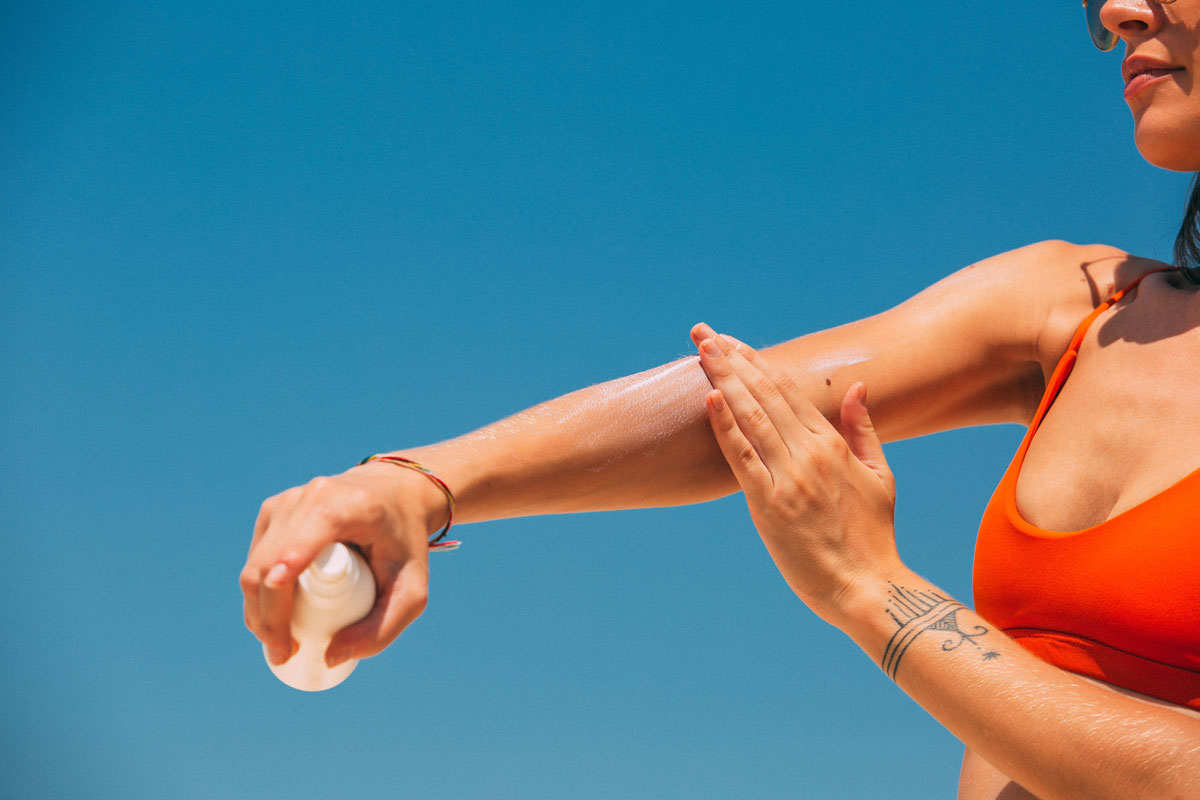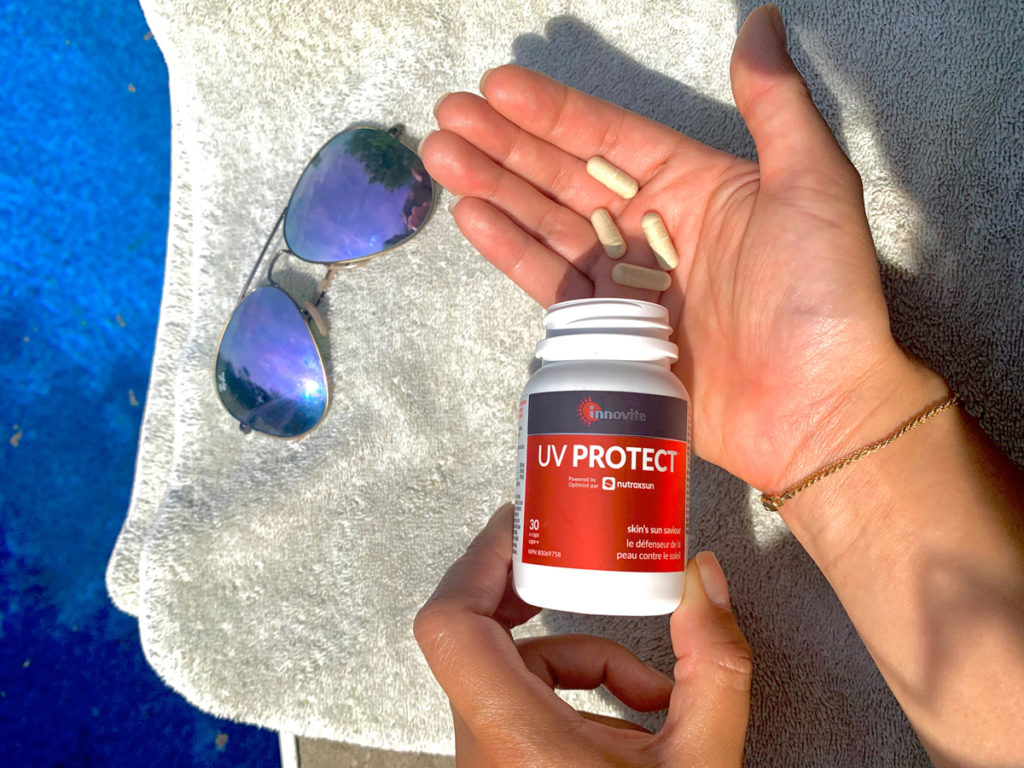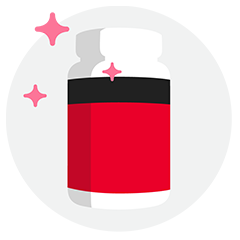Sun protection 101

Summer is here and there are plenty of activities to do under the warm rays of the sun – adventurous hikes, camping trips, relaxing at the beach, and the list goes on.
In fact, it’s important to spend time outdoors because some sun exposure is essential for specific chemical processes that happen within our bodies. This includes supporting the production of vitamin D, regulating our circadian rhythm, and acting as a great mood booster by releasing serotonin. However, too much sun can cause harm to our largest organ, the skin.
Wearing sunscreen should be protection enough, right? Not quite. Although it’s an essential part of protecting your skin from sun damage, sunscreen may wear off over time. That’s why going beyond topical protection by protecting your skin from the inside out can help you enjoy a more carefree summer.
Sun damage and our skin
The sun emits ultraviolet (UV) rays that can cause harm to our skin. There are two types of UV rays: UVA and UVB rays. UVA rays are known to travel deep into the skin, causing cosmetic damage like premature aging, leathering and sagging of skin. UVB rays can result in sunburns due to their high energy content, leading to a greater risk of skin cancer.
Over time, both types of UV rays can change the way our skin looks and feels. This is because UV rays react with melanin, a pigment in the skin that changes depending on sunlight exposure. And when melanin absorbs these UV rays, it causes the damage we mentioned before.
When we expose our skin to the sun’s rays for a long period of time, it provides the melanin in our skin with more time to react with the sun, resulting in skin cancer and premature aging of the skin.
But there are various ways to protect our skin from the sun. And in some cases, even reverse the damage.
What to look for in a sunscreen

Although sunscreen may not last throughout the whole day, it’s still a great way to protect our skin from the sun’s harmful rays. And when it comes to sunscreens, there are numerous options to choose from. But it doesn’t have to be a difficult decision to make. Here are some things that a good sunscreen will have:
- High Sun Protection Factor (SPF) – Look for one that has an SPF of at least 30 or more.
- Broad-spectrum – As we mentioned before, the sun emits different types of UV rays. A broad-spectrum sunscreen will ensure that it protects against both UVA and UVB rays.
Sunsticks
When we think of sun protection, we tend to forget our lips! But they need protection, too. Look for a sunstick that you can use to protect your lips. Oh, and don’t forget your ears, feet, hands, and in between your fingers and toes.
Skin-friendly foods to include in your diet
What we eat on a daily basis can support different parts of our bodies, making a well-rounded diet essential. There are certain nutrients, vitamins, and antioxidants that can specifically help shield your skin from the harmful rays of the sun.
Think of these foods as an extra layer of protection against sun damage. Consider increasing your intake of the following nutrients:
- Omega-3 fatty acids from avocados and fatty fish like mackerel help keep your skin smooth and glowing. They have anti-inflammatory properties that have been shown to protect skin cells against sun-induced inflammation.
- Polyphenols such as blackberries and flaxseeds are rich in antioxidants and act as a protective barrier for your skin against UV radiation, ultimately decreasing the damaging effects.
- Vitamin C-rich foods like oranges and broccoli are known to encourage collagen production, reduce wrinkles and protect against oxidative damage from UV rays. This important vitamin can even help treat already existing UV damage.
- Vitamin E from sunflower seeds and almonds has anti-inflammatory abilities and can help reduce UV-induced skin swelling. It’s also known to absorb UV light and prevent UV damage.
- Carotenoids such as cantaloupe and carrots can protect the skin against sun damage by preventing the degradation of collagen.
Sometimes, despite eating all the right foods, we might still need a little extra support to help keep our skin healthy. That’s where supplements come in. UV Protect is designed to protect your skin against daily sun exposure and UV radiation. It’s also clinically proven to improve skin UV response by 30%, reduce wrinkle depth by 15% and increase skin elasticity by 9%.

So what are you waiting for? Don’t let the fear of sun damage stop you from getting out and enjoying your summer. Just be sure to protect your skin with sunscreen, and nurture it from the inside out with skin-friendly nutrients.
Sources:
- Sun Safety
- Sun and Skin – The Dark Side of Sun Exposure
- NutroxSun
- Longwave and Shortwave Radiation
- Vitamin E and Skin Health
- Carotenoids: In Skin’s Defense
- Polyphenols: Skin Photoprotection and Inhibition of Photocarcinogenesis
- Here’s Exactly What to Look for in a Sunscreen
- The Benefits of Omega 3 for the Skin






